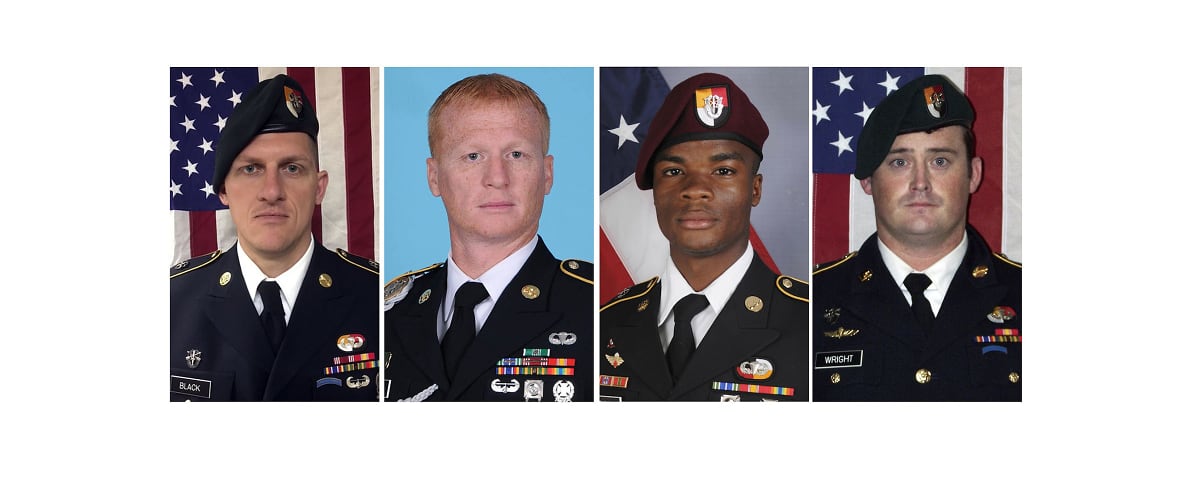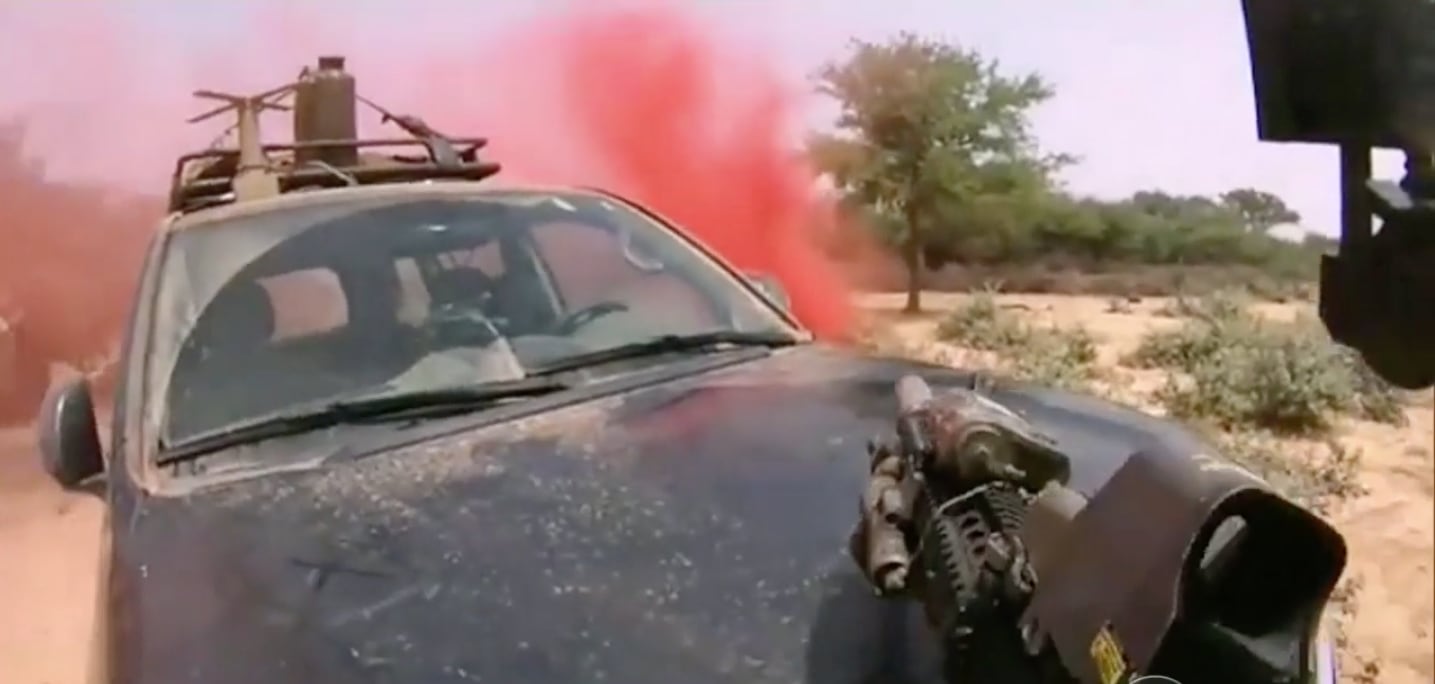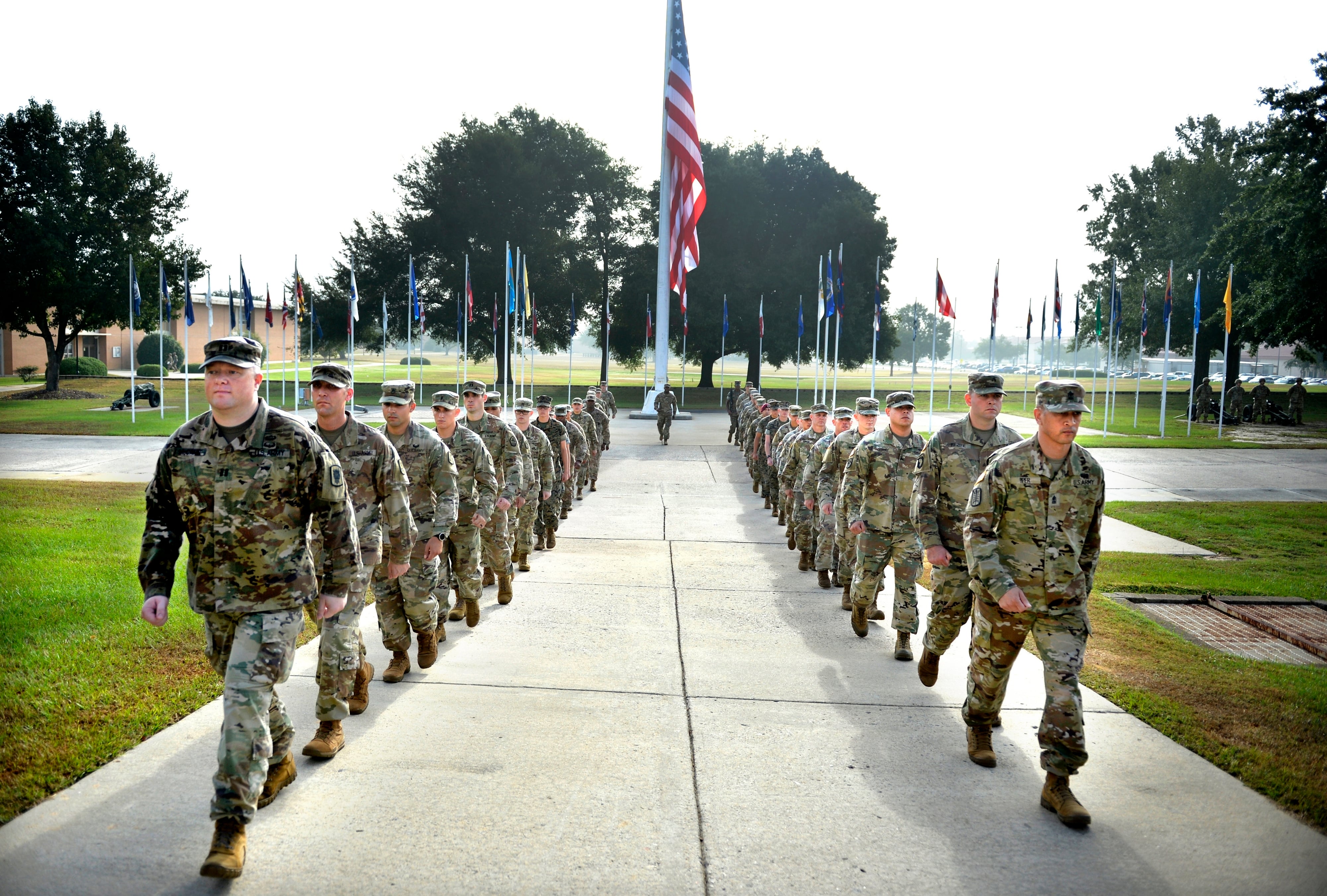As reports emerge that four U.S. troops killed in an October ambush in Niger may not have gotten command approval for their mission, the Marine general who heads the combat mission in Africa laid out the multitude of challenges his people face on the continent.
Marine Gen. Thomas Waldhauser told House Armed Services Committee members during a hearing Tuesday on Capitol Hill that he could not discuss details of Africa Command’s investigation until the report was finalized and briefed to the families of the fallen.
He added that the report into the deaths of members of an Army Special Forces team, which first went to meet local leaders and was then redirected to assist in the hunt for a militant suspected in the kidnapping of a U.S. aid worker, had been completed and sent to Secretary of Defense Jim Mattis.
Ultimately, Mattis will review and approve the investigative report, compiled over the course of five months by Army Maj. Gen. Roger Cloutier Jr., before briefing the four families involved and then returning to the Hill to brief Congress on what happened and how it can be avoided in the future.
The length of time for the investigation and its release raised the ire of at least one committee member, Rep. Ruben Gallego, D-Ariz., a Marine veteran of the Iraq war.
“When are we going to get our briefing so we can do our due diligence and jobs as oversight?” Gallego said. “It is insulting that I’m hearing things getting leaked from the press before we get briefings.”
The general shied away from getting too specific, only repeating that the report is in the hands of Mattis, and once the secretary signs off on it, the families will be briefed, a process he said could take two weeks.
An upcoming congressional recess also could further delay a public hearing.

The soldiers’ deaths last year brought unwelcome attention to the U.S. mission in Africa, which was largely unknown or ignored by many Americans.
Video footage, seemingly from the helmet camera of one of the slain soldiers, was posted online recently as part of Islamic State propaganda.
The deaths of the four U.S. soldiers — Sgt. La David Johnson, Staff Sgt. Bryan Black, Staff Sgt. Jeremiah Johnson and Staff Sgt. Dustin Wright — became public following another troubling incident in Africa.
This one involved the homicide of Army Green Beret Staff Sgt. Logan Melgar, who was serving on a mission in Mali. Naval Criminal Investigative Services has questioned two Navy SEALs, who were roommates of Melgar’s, in connection with his death.
The SEALs were returned to the United States and placed on administrative leave pending the results of the investigation.

The troop footprint in Africa has remained steady at about 6,500 U.S. troops and 1,000 private contractors across the continent, Waldhauser said.
The forces are divided up, with more than 4,000 of those personnel in Djibouti, Somalia and Kenya, the general said. The remaining number, or about 2,500, are working in areas such as Burkina Faso, Chad, Mali, Mauritania and Niger.
RELATED

During Tuesday’s hearing, Waldhauser repeatedly emphasized the small number of troops being used in partnership with local forces over vast areas. He characterized the continent as more than three times the size of the United States. The coastline of Somalia alone nearly equals the entire U.S. Eastern seaboard, he said.
Those descriptions prompted a question about U.S. forces’ ability to support troops in trouble, including whether the U.S. had quick-reaction forces who could quickly respond to contingencies.
The lack of rapid response either from U.S. or partner forces during the Niger ambush also has raised a lot of criticism in various circles.
Waldhauser somewhat dodged the QRF question, posed by Rep. Jimmy Panetta, D-California, and instead referenced medical evacuation and personnel recovery capabilities, which cover large areas and must be tied closely to operations.
The Associated Press contributed to this report.
Todd South has written about crime, courts, government and the military for multiple publications since 2004 and was named a 2014 Pulitzer finalist for a co-written project on witness intimidation. Todd is a Marine veteran of the Iraq War.





